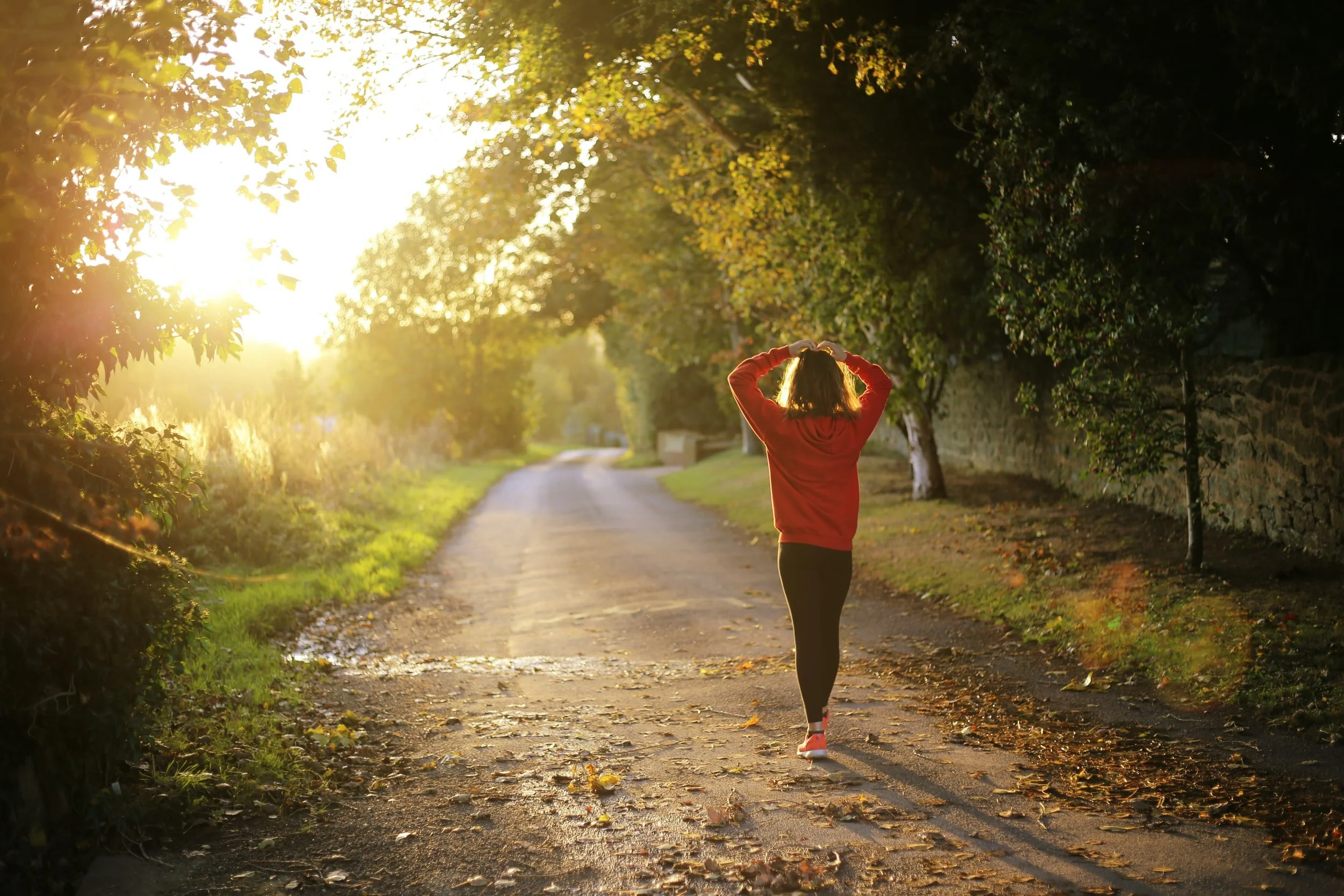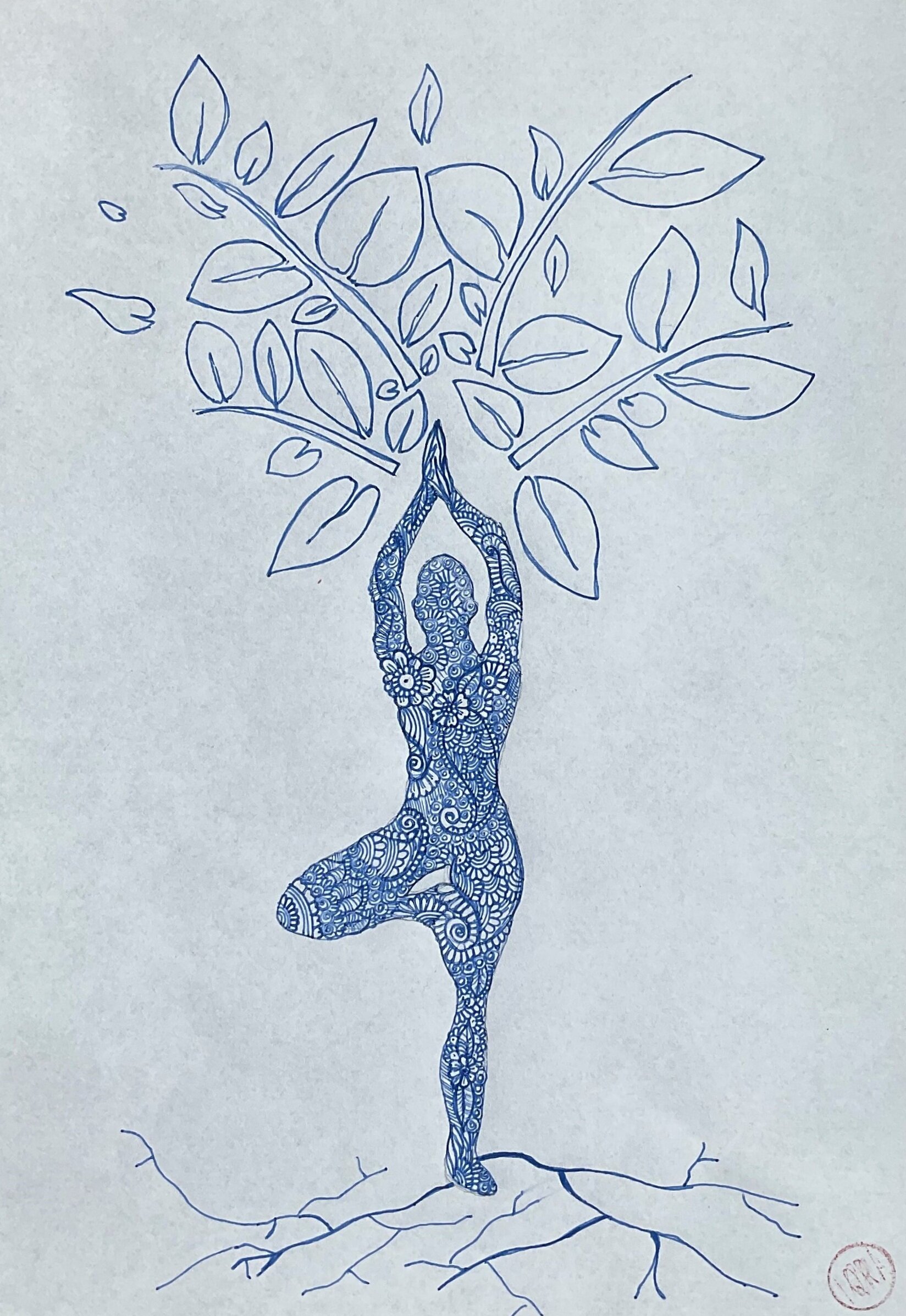Pre-exam wellness tips
For many who are taking university exams in the coming weeks, stress is a very real concern. Here, Sabrina Page - a qualified yoga instructor and student at the London School of Hygiene and Tropical Medicine - talks through some tried and tested tips to help cope.
Photo credit: Unsplash
Taking time away from studies can help.
Pre-exam stress and anxiety is shared by many and are completely valid feelings to have. I’ve put together a list of some wellness tips that I have used in the past, along with others shared with me by friends and family. Hopefully you can find comfort in knowing you are not alone in feeling how you feel, and perhaps some of these tips will be worth trying now and in the future!
Movement. I know, uncreative. You’ve probably heard that before. However, over the past year of lockdown, I worked on really shifting my relationship with exercise. I at times really dreaded it and didn’t have much energy to engage in it either - something I am sure others feel especially around revision time. I started to include in my daily planner the word “movement”, and told myself that movement encompasses way more than your standard cardio work out. Some days movement looked like a 15 minute walk, other days a slow vinyasa yoga class, and some days I spiced it up a little and just played Shakira and danced while making lunch. I think at times we place this idea in our minds that a good work out is only good if we are out of breath or we see physical changes, but we neglect our inner selves and our minds when we focus too much on the physical aspect. I encourage you to carve even 10 minutes out of your day, for yourself, moving in some way, shape, or form.
Photo credit: Unsplash
Going for a run or a walk is a useful way to de-stress.
Going off my last point, creating to-do lists if you use a planner is a great way to keep on top of revisions. Going even further I challenge you to create a self-care to-do list, too. It’s easy for us to write “Revise for Epi”, “Join revision meeting”, “Read IPH readings” but what about including “Meditate for 5 minutes”, “Go on a walk for 20 minutes”, “Call a friend for a catch up”, “Cook a new recipe”. I realise that for some, to-do lists can create even more anxiety if you were not able to check off all the boxes, but let this instead be a chance for you to pause at the end of the day or week, look over your days, and see if certain ones were better than others because you included some time for yourself! We are humans, not machines. Try not to let yourself measure your worth based off your productivity.
Photo credit: Unsplash
Using a physical or virtual to-do list can help provide a sense of accomplishment.
You’re not alone. Life is hard. Throw in the mix a pandemic and being a student, we’re bound at times to feel stressed, worried, down. We truly do not give ourselves enough credit for what we have been through and all we juggle now. This past year has hopefully taught us the importance of addressing mental health and the needs that come along with it. You are not weak. You are not stupid. You are not asking for too much. If things get too overwhelming, reach out to a friend, a family member, or student support services at the university. Maybe even create a support group chat with uni friends (or anyone!) where you can come together at the end of the day, discuss how the day went, if you want to make it an exam talk free zone too, go for it. Just having something to discuss the feelings that come up, especially around exam times, can be comforting. It is once again another reminder you are never alone in how you feel.
Photo credit: Unsplash
Talk to friends even if online.
5-4-3-2-1 grounding technique. This is a great exercise to practice when things just get to be a bit too much. I find myself doing this at random points in the day, on the train, during breaks from seminar, whenever really. It starts by taking notice of your breathing. Becoming mindful of your breath, taking 5 deep breaths in, then out. Once you feel like you’ve got you’re breathing under control, you start the technique.
You begin with 5. Acknowledge 5 things you see around you. It could be a book, a pen, your desk. Anything.
Then 4. Acknowledge 4 things you can touch around you. Maybe it’s your hair, the ground below you, or the table in front of you.
3. Acknowledge 3 things you can hear. Maybe it’s the cars outside. The birds chirping out your window.
2. Acknowledge 2 things you can smell. Maybe this requires standing up to find a scent, either the food that’s cooking in the kitchen, or a candle you wish to light.
1. Acknowledge 1 thing you can taste. Do you still taste parts of your morning breakfast? Maybe the coffee or tea you just had. Or maybe this part makes you realise it’s time for a lunch break.
Photo credit: Iqra Ilyas inspired by image from istockphoto.com
Begin to incorporate some good habits. A massive lesson I had to learn this past year with Zoom was creating boundaries. With working from home, it’s very easy to go on working late into the night or bringing your workspace into your home and living space. Some of these are at times inevitable, but becoming aware of your working space and hours can begin to create better boundaries for your uni, work, and social life. I love the forest app for helping me stay focused but also reminding me to take breaks. The whole point of the app is to increase productivity by keeping you motivated to grow a virtual tree. You can set the timer to any amount on your phone and put it on a do not disturb mode - which means if you leave the app, the tree does not grow. My favourite part though is using it to remind me to give my self 10-15 minutes for every hour I am revising. On days I feel my motivation is lacking, I set it to 30 minutes, with a 5 minute break. It is completely customisable and encourages productivity and mindfulness at the same time.
Last but not least, keep it in perspective. It’s easy to trick our minds into thinking this one exam determines the outcome of the rest of our life. This is simply not the case. I know what you might be thinking as you read that last line: “Well it does if I want to do a PhD!” or “It does for my job!”. I completely understand. We all have further ambitions beyond this MSc and we should want the best for ourselves. However, how we take care of our ourselves now affects our future selves on a much deeper level than we may realise. I am always saying we can not give from an empty basket. Try not to let this time in your career as a student empty your basket. You will succeed, you will get to where you want to be, and you are worthy of that, too.





